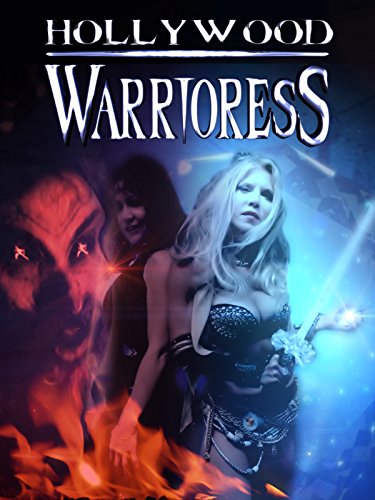★★½
“A hair short.”
 This takes place in upstate New York during the 1812 war between Britain and America, when combatants are courting the Mohawk tribe to join forces with them. The natives are suspicious of both, and won’t commit to either. Working for the British is Joshua (Farren), who is in a slightly odd, three-way relationship with Mohawk warrioress Oak (Horn) and fellow native Calvin (Rain). On the other side is Hezekiah Holt (Buzzington), and his small band of Americans, who are out for redcoat blood. When they blame the Mohawk for murdering some of their number, their violence quickly extends to encompass Oak and Calvin, as well as Joshua. After Oak is left all alone, she goes on the war-path to take revenge on Holt and his men.
This takes place in upstate New York during the 1812 war between Britain and America, when combatants are courting the Mohawk tribe to join forces with them. The natives are suspicious of both, and won’t commit to either. Working for the British is Joshua (Farren), who is in a slightly odd, three-way relationship with Mohawk warrioress Oak (Horn) and fellow native Calvin (Rain). On the other side is Hezekiah Holt (Buzzington), and his small band of Americans, who are out for redcoat blood. When they blame the Mohawk for murdering some of their number, their violence quickly extends to encompass Oak and Calvin, as well as Joshua. After Oak is left all alone, she goes on the war-path to take revenge on Holt and his men.
Low-budget period pieces are always on shaky ground, because creating genuine period atmosphere typically costs money. This sidesteps the issue by largely taking place in the middle of the woods, thereby limiting costs to a selection of uniforms and other costumes. It is a slightly obvious swerve, and I was also distracted by the sizable presence of WWE wrestler Luke Harper (under his real name, Jon Huber) as one of Holt’s platoon. The main problem, however, is the abrupt switch over to a supernatural theme for the final act. After the film has been thoroughly – and gorily – grounded in reality for more than an hour, it suddenly turns into a native American version of The Crow.
This is a shame, as the story to that point had taken some standard tropes and twisted them in interesting ways. While I’ve classified this as a “Western,” it’s more of an Eastern in terms of its location on the continent, and dates from an earlier era than usual as well. It could easily have become a scenario painted in black and white; instead, it’s considerably murkier, with motivations largely kept under wraps, especially those of Joshua and Oak. The latter, in particular, spends a good chunk of the movie lurking in the woods, with the focus on Holt and his dwindling crew. They’re in particular trouble after their tracker is picked off, giving a decisive advantage of terrain to their enemies.
As noted, it’s enthusiastically messy and brutal, as appears to be a recent trend in the more revisionist of Westerns (hello, Bone Tomahawk). But I was probably expecting more emphasis on Oak rather than Holt, which doesn’t happen until after the shift in tone also mentioned earlier. Horn does deliver a powerful performance, very much quiet and understated, and I’d like to have seen more of it. Given this inner strength, it didn’t seem logical to me for Oak to be bailed out by help from the spirits of her ancestors or whatever, in order to carry out her vengeance. Leaning on this as the story does (and where were these spirits when everyone else was being massacred?), seems a bit of an unnecessary cop-out. Not by any means terrible, yet could certainly have been better.
Dir: Ted Geoghegan
Star: Kaniehtiio Horn, Eamon Farren, Justin Rain, Ezra Buzzington





 I was quite surprised to hear about Amazon taking up Joe Wright’s 2011
I was quite surprised to hear about Amazon taking up Joe Wright’s 2011  Marginally competent, and just not very exciting, this low-budget offering is the story of December (Kurishingal). As a young girl, she watched as the rest of her family was slaughtered by Law (Ramsey) and his villains, the result of a debt owed by her father. A decade or so late, she has grown up and taken to the streets as a vigilante, seeking vengeance on those responsible. Or, until she finds them, any other perpetrators she comes across during her night-time ramblings through the mean back alleys of the city. Helping her mission, is that she now works for the police, which puts her in a prime position to ensure, for example, that any evidence pointing in her direction goes “missing”.
Marginally competent, and just not very exciting, this low-budget offering is the story of December (Kurishingal). As a young girl, she watched as the rest of her family was slaughtered by Law (Ramsey) and his villains, the result of a debt owed by her father. A decade or so late, she has grown up and taken to the streets as a vigilante, seeking vengeance on those responsible. Or, until she finds them, any other perpetrators she comes across during her night-time ramblings through the mean back alleys of the city. Helping her mission, is that she now works for the police, which puts her in a prime position to ensure, for example, that any evidence pointing in her direction goes “missing”. If you took four different films, by four different directors, and edited them together into a single entity, you might end up something similar to this. Oh, make no mistake: I still enjoyed most of this. It just doesn’t feel like a coherent whole, perhaps because it is a spin-off involving some of the same characters from an earlier film, Baby. For at least three-quarters of it, however, not having seen its predecessor shouldn’t be too much of a problem.
If you took four different films, by four different directors, and edited them together into a single entity, you might end up something similar to this. Oh, make no mistake: I still enjoyed most of this. It just doesn’t feel like a coherent whole, perhaps because it is a spin-off involving some of the same characters from an earlier film, Baby. For at least three-quarters of it, however, not having seen its predecessor shouldn’t be too much of a problem. Katelyn Wolfraum is a German expat, who was working as a field agent for MI-6, until an unfortunate incident just before the war, involving a member of the British Royal Family, left her persona non grata with the authorities. Fast forward to 1941, the depths of World War II, and she’s an intelligence analyst under Colonel Lyons and Major Trufflefoot in the North African desert. With Field-Marshall Rommel tearing across the terrain in a blitzkrieg, she finds herself trapped deep behind enemy lines, along with a motley international band of Allied soldiers. When they discover evidence of a Nazi super-weapon about to be deployed, Kat and her colleagues decide to take the fight to the enemy and sabotage the Third Reich’s plans. But complicating matters is the presence of Kat’s foster father, who is now a high-ranking officer in the SS, tasked with ensuring the saboteurs are stopped.
Katelyn Wolfraum is a German expat, who was working as a field agent for MI-6, until an unfortunate incident just before the war, involving a member of the British Royal Family, left her persona non grata with the authorities. Fast forward to 1941, the depths of World War II, and she’s an intelligence analyst under Colonel Lyons and Major Trufflefoot in the North African desert. With Field-Marshall Rommel tearing across the terrain in a blitzkrieg, she finds herself trapped deep behind enemy lines, along with a motley international band of Allied soldiers. When they discover evidence of a Nazi super-weapon about to be deployed, Kat and her colleagues decide to take the fight to the enemy and sabotage the Third Reich’s plans. But complicating matters is the presence of Kat’s foster father, who is now a high-ranking officer in the SS, tasked with ensuring the saboteurs are stopped. Ineptly constructed on just about every level, this proves that stealing from better movies – most obviously, Halloween and The Strangers – is not a guaranteed recipe for success. Teacher Ella (Grant) is has just moved into a new home with her husband, Robert (Skipper), who works at the local hospital. Left alone in the house on Halloween night – that whirring sounds are my eyes rolling – Ella becomes the target for two young girls (Prichard + Collins) in masks, whose unfortunate pre-natal experience has apparently left them with severely psychotic tendencies. Or so we are left to presume, for the bulk of what follows.
Ineptly constructed on just about every level, this proves that stealing from better movies – most obviously, Halloween and The Strangers – is not a guaranteed recipe for success. Teacher Ella (Grant) is has just moved into a new home with her husband, Robert (Skipper), who works at the local hospital. Left alone in the house on Halloween night – that whirring sounds are my eyes rolling – Ella becomes the target for two young girls (Prichard + Collins) in masks, whose unfortunate pre-natal experience has apparently left them with severely psychotic tendencies. Or so we are left to presume, for the bulk of what follows. It has been a rough couple of years for Luc Besson. Valerian and the City of a Thousand Planets became possibly the biggest flop in European cinematic history, despite – or, perhaps, because of – being the most expensive movie ever made there. It cost so much money that it sank his EuropaCorp studio, already struggling after other failures, deep into financial trouble. Then, in May, a rape allegation was filed with police by actress Sand Van Roy. That opened the door for a slew of others to come forward with their #MeToo stories about Besson. It was quite a fall for a man who had enjoyed the biggest hit of his career with 2014’s
It has been a rough couple of years for Luc Besson. Valerian and the City of a Thousand Planets became possibly the biggest flop in European cinematic history, despite – or, perhaps, because of – being the most expensive movie ever made there. It cost so much money that it sank his EuropaCorp studio, already struggling after other failures, deep into financial trouble. Then, in May, a rape allegation was filed with police by actress Sand Van Roy. That opened the door for a slew of others to come forward with their #MeToo stories about Besson. It was quite a fall for a man who had enjoyed the biggest hit of his career with 2014’s  I could have sworn I’d seen this before, to the point where I almost skipped over it on Amazon Prime. But on checking, appears not. Did I watch it, and just not review it? Or does it only
I could have sworn I’d seen this before, to the point where I almost skipped over it on Amazon Prime. But on checking, appears not. Did I watch it, and just not review it? Or does it only  The IMDb says this is a 2016 movie. The copyright in the end credits says 2014. But shooting was apparently going on for this at least as far back as 2011, according to Internet reports. I suspect a lengthy production, shot on weekends, when the participants have some spare time, which may well explain the presence of
The IMDb says this is a 2016 movie. The copyright in the end credits says 2014. But shooting was apparently going on for this at least as far back as 2011, according to Internet reports. I suspect a lengthy production, shot on weekends, when the participants have some spare time, which may well explain the presence of  You’ll understand why, when skimming leisurely through a streaming channel on the Roku, I screeched to a halt at this title. Even though the “official” English title is just Killing Machine, I knew I immediately had to watch it. Yet, while the title
You’ll understand why, when skimming leisurely through a streaming channel on the Roku, I screeched to a halt at this title. Even though the “official” English title is just Killing Machine, I knew I immediately had to watch it. Yet, while the title